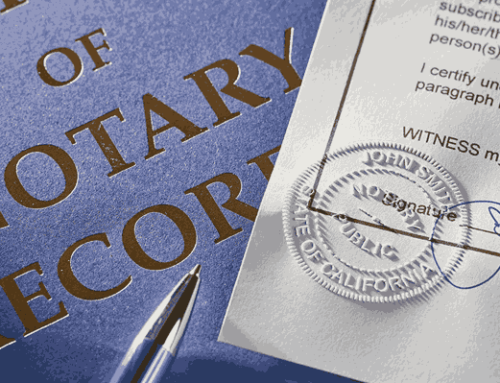In today’s complex business environment, managing legal risks has become a critical aspect of corporate governance. As companies face increasing regulatory scrutiny and potential legal challenges. In-house legal counsel plays a crucial role in identifying legal risks. This blog post explores strategies for in-house legal counsel to manage legal risks effectively and safeguard the interests of organizations.
Strategies for In House Counsel to Manage Legal Risks:

The key responsibility of in-house legal counsel is to stay up to date with the ever-changing legal and regulatory landscape. Keeping abreast of new laws, regulations, and judicial decisions relevant to the company’s industry is crucial for managing legal risks. By staying informed, legal counsel can identify potential risks and take proactive measures to ensure compliance.
1. Implement Comprehensive Compliance Programs
Developing and implementing robust compliance programs is an essential strategy for managing legal risks. These programs should encompass policies, procedures, and internal controls that address various legal and regulatory requirements applicable to the organization. In-house legal counsel should work closely with other departments. Integrate compliance efforts effectively into the company’s operations. Regular training sessions and awareness programs can also help promote a culture of compliance throughout the organization.
2. Conduct Risk Assessments
Conducting regular risk assessments is a critical part of managing legal risks. In-house legal counsel should work collaboratively with other stakeholders, such as senior management, operations teams, and external consultants. To identify potential legal vulnerabilities. These assessments can involve reviewing contracts, analyzing business practices, and evaluating potential litigation risks. By conducting thorough risk assessments, legal counsel can prioritize areas of concern and develop strategies to mitigate potential legal pitfalls.
3. Engage Proactively with External Counsel
While in-house legal counsel plays a vital role in managing legal risks, external counsel can provide specialized expertise and support. Developing strong relationships with external law firms and regularly engaging with them on legal matters can prove beneficial. In-house legal counsel should leverage the expertise of external counsel to gain insights into emerging legal trends. Seeking guidance on complex legal issues and obtaining second opinions. Collaborating with external counsel can enhance the effectiveness of risk management strategies and help navigate potential legal challenges.
4. Foster a Culture of Ethical Conduct
Promoting a culture of ethical conduct within the organization is essential for managing legal risks. In-house legal counsel should actively work towards creating an environment where value and encourage ethical behavior. This involves establishing clear ethical guidelines, providing training on ethical conduct, and leading by example. By fostering a culture of integrity, legal counsel can reduce the likelihood of legal violations and enhance the organization’s reputation.
5. Develop Crisis Management Plans
Despite proactive risk management efforts, legal crises may still arise. In-house legal counsel should develop comprehensive crisis management plans to address potential legal emergencies effectively. These plans should outline the steps to be taken in the event of a crisis, designate key roles and responsibilities. By establishing communication protocols by preparing them in advance, legal counsel can respond swiftly. Minimizing the potential impact of legal crises on the organization.
6. Establish Strong Contract Management Processes
To mitigate legal risks, it is essential to have robust contract management processes in place. In-house legal counsel should oversee the drafting, review, and negotiation of contracts to ensure compliance and minimize legal vulnerabilities. By implementing standardized templates, clear contract terms, and effective tracking systems. Legal counsel can reduce the likelihood of contractual disputes and enforceability issues.
7. Develop Intellectual Property Protection Strategies
Intellectual property (IP) is a valuable asset for many organizations, and protecting it is crucial. In-house legal counsel should collaborate with relevant stakeholders to protect the company’s IP rights through patents, copyrights, or trade secrets. Regularly conducting IP audits, implementing confidentiality measures, and monitoring potential infringements can help safeguard the organization’s valuable intellectual property.
8. Implement Data Privacy and Security Measures
In an increasingly digital world, data privacy and security have become significant legal concerns. In-house legal counsel should ensure compliance with relevant data protection laws and regulations, such as GDPR or CCPA. Implementing robust data privacy policies, secure data storage measures, and data breach response plans can minimize legal risks. Associated with data protection and enhancing customer trust.
9. Stay Prepared for Regulatory Investigations and Audits
In-house legal counsel should be prepared for regulatory investigations or audits that may arise in various industries. This involves establishing protocols for responding to regulatory inquiries, assembling necessary documentation, and coordinating with relevant departments. By being well-prepared, legal counsel can ensure timely and appropriate responses to regulatory authorities, mitigating potential legal consequences.
10. Monitor and Manage Litigation Risks
Litigation risks can significantly impact an organization’s finances, reputation, and resources. In-house legal counsel should work closely with external counsel to manage litigation risks effectively. This includes conducting early case assessments, exploring alternative dispute resolution mechanisms, and developing litigation budgeting strategies. By proactively managing litigation risks, legal counsel can minimize the impact of potential legal disputes on the organization.
11. Conduct Due Diligence for Mergers and Acquisitions
In the context of M&A in-house, legal counsel plays a critical role in identifying and managing legal risks. Thorough due diligence is necessary to identify any potential legal issues or liabilities of the target company. Working closely with external counsel, legal counsel should review contracts and intellectual property matters to ensure a smooth transition. Legally compliant M&A process.
12. Continuously Review and Update Legal Policies
To adapt to changing laws and regulations, in-house legal counsel should regularly update the organization’s legal policies and procedures. This includes ensuring compliance with employment laws, anti-corruption regulations, data protection laws, and industry-specific regulations. Legal counsel should communicate policy updates to employees through training programs and regular updates to maintain a culture of compliance.
13. Enhance Legal Training and Awareness Programs
In-house legal counsel should prioritize legal training and awareness programs for employees. Providing targeted training on legal compliance, risk management, and ethical conduct. Regular communication and updates on legal matters through newsletters or internal communications can also reinforce legal awareness throughout the organization.
14. Implement Effective Document Retention and Record-Keeping Practices
In-house legal counsel should establish and enforce document retention and record-keeping policies. Implementing consistent practices for preserving relevant documents and records can help mitigate legal risks in the event of litigation.
Compliance with legal and industry-specific retention requirements is crucial to avoid potential penalties or adverse legal implications.
15. Collaborate with Internal Stakeholders
In-house legal counsel should foster strong relationships with key internal stakeholders. Such as senior management, compliance officers, and risk management teams. By collaborating closely with these stakeholders, legal counsel can gain insights into business operations. Anticipating legal risks and aligning legal strategies. Regular communication and coordination can facilitate proactive risk management and early identification of legal issues.
16. Conduct Vendor and Third-Party Due Diligence
In-house legal counsel should conduct due diligence on vendors, suppliers, and other third parties that the organization engages with. Assessing the legal and compliance track record of these entities can help identify potential risks. Ensuring they align with the organization’s legal and ethical standards. Implementing robust contractual provisions and monitoring ongoing compliance by third parties can help minimize legal risks arising from these relationships.
17. Implement Whistleblower and Reporting Mechanisms
In-house legal counsel should establish effective whistleblower and reporting mechanisms within the organization. Encouraging employees to report potential legal violations anonymously. Without fear of retaliation can help identify and address legal risks early on. Ensuring confidentiality and prompt response to reports is essential to maintain trust in the reporting process.
18. Stay Informed about Industry-Specific Legal Challenges
In-house legal counsel should remain knowledgeable about industry-specific legal challenges and developments. By understanding the unique legal landscape of their industry, legal counsel can proactively address sector-specific risks and emerging legal trends. Engaging with industry associations, attending relevant conferences, and participating in industry-specific forums can provide valuable insights.
19. Continuously Improve and Adapt Legal Risk Management Strategies
Legal risk management is an ongoing process that requires continuous improvement and adaptation. In-house legal counsel should regularly evaluate the effectiveness of existing risk management strategies and adjust them as needed. Learning from experiences, analyzing emerging legal trends, and seeking feedback from stakeholders. Will help refine and enhance legal risk management strategies over time.
Summing Up:
Managing legal risks requires a proactive and holistic approach by in-house legal counsel. Enhancing legal training and awareness programs, implementing effective document retention and record-keeping practices, and collaborating with internal stakeholders. Conducting vendor and third-party due diligence, implementing whistleblower and reporting mechanisms, and staying informed about industry-specific legal challenges. Continuously improving and adapting legal risk management strategies, legal counsel can effectively navigate the complexities of legal risks.
By employing these strategies, in-house legal teams can safeguard their organizations’ interests, and enhance compliance. Mitigating potential legal liabilities in today’s dynamic business environment.





